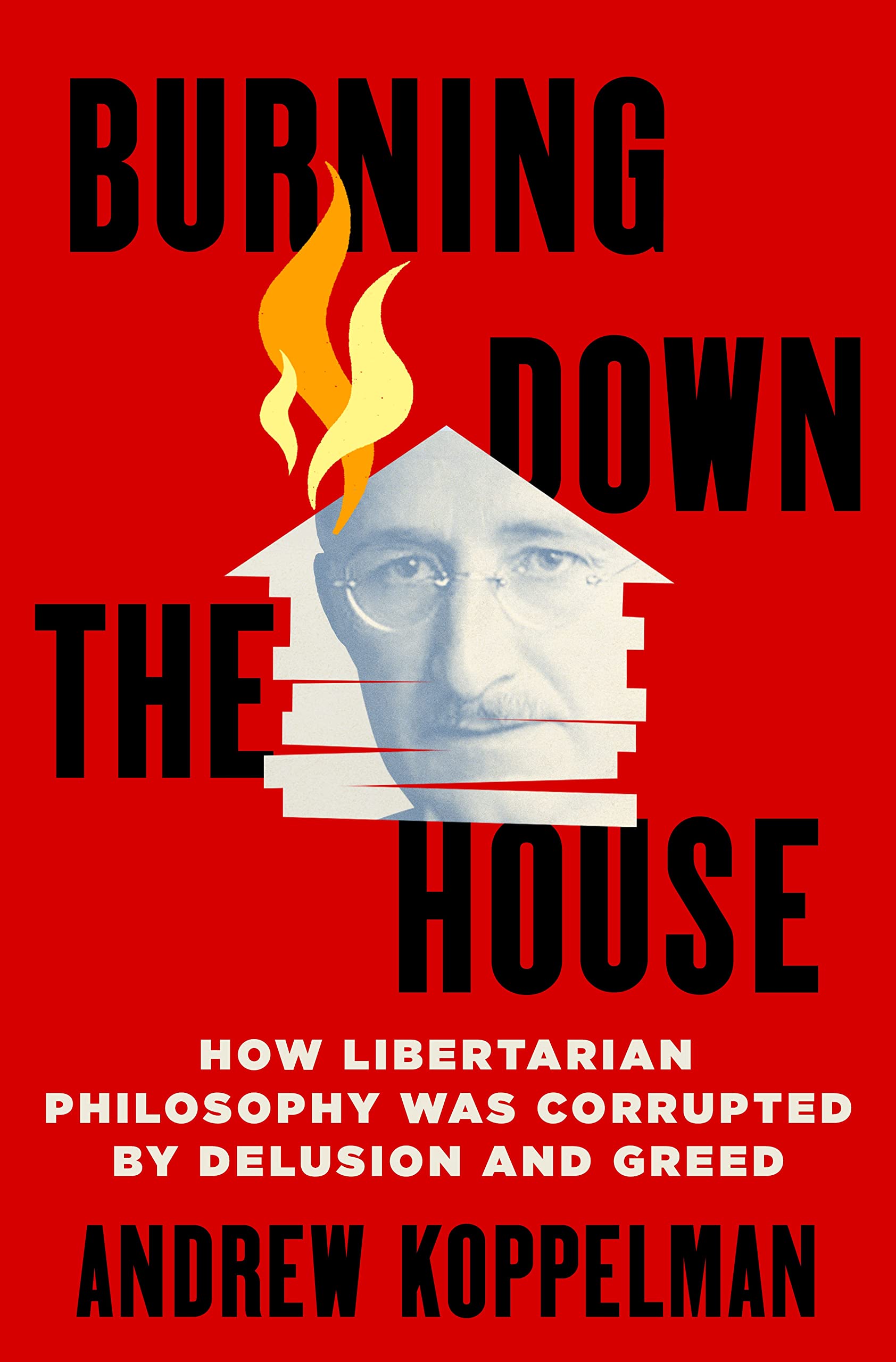
In his new book, Burning Down the House: How Libertarian Philosophy was Corrupted by Delusion and Greed, Andrew Koppelman, the John Paul Stevens Professor of Law at Northwestern University attempts to rescue libertarianism from itself by centering the work of Freidrich A. Hayek, one of the most distinguished economists of the twentieth century. Toward the end of the book, Koppelman discusses Barry Goldwater “who admired and sometimes quoted Hayek…After he had the [1964 Republican] nomination [for the Presidency], Goldwater (himself no racist) voted against the Civil Rights Act on libertarian grounds: ‘the freedom to associate means the same thing as the freedom not to associate.'” (p. 188). On the following page, he writes, “Reagan succeeded in shifting American politics–and American understandings of liberty, in Hayekian direction. He used the word freedom in his speeches more than any president before or since” (p, 189). Nestled between those two sentences is this one: “Libertarianism in all the forms we have examined is firmly opposed to racism. We have seen no trace of it in any of the arguments we have surveyed” (p. 189). That Koppelman cannot see any “trace of racism” in Goldwater parroting standard segregationist lines to oppose the Civil Rights Act or in Reagan’s “War on Drugs,” environmental racism, and generally throttling any antiracism in the Republican party underscores the flaws of his analysis of the history of libertarian ideology and racism.
In some respects Koppelman tells a story that parallels Matt Zwolinksi & John Tomasi’s The Individualists. Both books tell a story of libertarian ideas that, somehow, lost their way. What was once a philosophy that championed freedom for all became, or is in danger of becoming, a philosophy of reaction and repression. For Zwolinski & Tomasi it was a reactionary turn the movement took in the second half of the twentieth century. For Koppelman, the problem is similar: it is that libertarianism has misunderstood its own founding ideas; for him, libertarians are too entranced by the views of Ayn Rand and Murray N. Rothbard instead of F.A. Hayek, libertarianism’s true founder because “American libertarianism began with Hayek” (p. 7).
One reason Koppelman argues that Hayek is properly viewed as the founder of libertarianism is that Koppelman believes that nearly every viable option in today’s political landscape opposes the planned economy that Hayek feared. “Excerpt for a politically impossible fringe, the American left aims for a generous welfare state–more generous than the present one–in the context of capitalism” (p. 4-5). Yes, even Bernie Sanders (p. 5, 35). According to Koppelman, “The ideas of Hayek, valuing markets because they promise a better life for everyone are today commonplace in the Democratic Party” (p. 13). For Koppelman, the enemies of libertarianism come from the right, not the left. Libertarian ideas are threatened by Republican embrace of “Christian fundamentalism and Trumpian racist, xenophobic nationalism” (p. 12).The question then becomes, does Hayekian libertarianism give Koppelman the tools he needs to combat racism? To answer that question, I will examine how Hayek fits into the history of the relationship between libertarian thought and racist thought. Despite attempts at “revisionist” history from twenty-first century libertarians, the libertarian tradition they’ve inherited was either an active participant in building a racist society or passive observers of it. Looking to libertarian ideology to somehow be an active warrior against racism at this late date might be possible, but to do so libertarians need to honestly evaluate their own past.
Page Two will explore these difficulties.

Pingback: (He Gets Us) “Trust Jesus…” [3] – a mystical möbius
Pingback: Hayek Versus Hayek | Fardels Bear